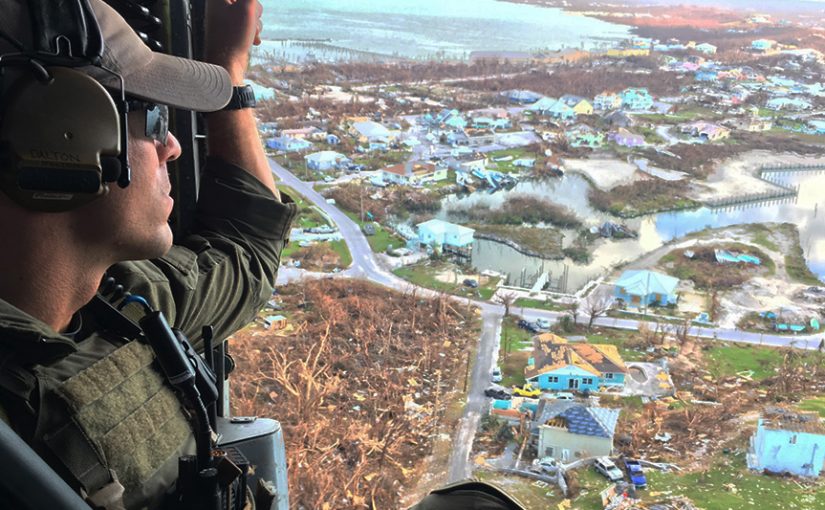A special agent with a DSS Mobile Security Deployments team surveys the damage sustained by The Bahamas from Hurricane Dorian in 2019. DSS manages evacuations of U.S. embassies and consulates ahead of natural disasters and other threats. (U.S. Department of State photo)
Russia invades Ukraine. A category 5 hurricane tears through the Caribbean. Anti-government protests roil Kazakhstan. A drug cartel attacks a U.S. consulate in Mexico. An explosion levels a seaport in Beirut. A pandemic ravages the planet.
All these events come straight from real-life current events, and each is a critical incident in itself, not only for the local population and their security services, but also for the Diplomatic Security Service (DSS). Their response in these events exemplifies the type of crisis management at which DSS excels.
As the law enforcement and security arm of the U.S. Department of State, DSS is charged with protecting the department’s people, facilities, and information in more than 270 locations around the world, including in the United States. DSS special agents have been involved in managing some of the most complex critical incidents around the world such as assaults on dignitaries under U.S. protection; bomb threats or demonstrations at U.S. embassies; wide-spread events such as civil unrest and terrorist attacks; and global incidents like the evacuation of U.S. citizens from other countries.
In January 2022, a peaceful protest in Kazakhstan morphed into violent unrest. DSS special agents ensured U.S. diplomatic staff took measures to stay safe until they could evacuate the country. Amid the coup, the local government shut down the internet, forcing the DSS special agents to improvise communications tactics in their efforts to ensure accountability of personnel and pass emergency messages as the crisis unfolded.
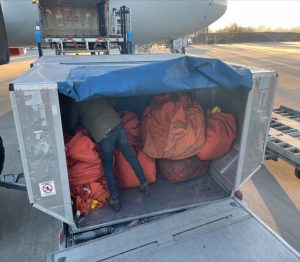
Similarly, as Russia invaded Ukraine in February 2022, DSS special agents facilitated the relocation and evacuation of U.S. embassy personnel from Ukraine and secured moves by senior U.S. government officials into the country to meet with Ukrainian officials. DSS special agents continue to carefully evaluate the changing situation and take actions to ensure the safety and security of U.S. personnel.
Part of this preparation—like any critical response planning—is the selection and training of the people involved in managing a crisis.
From the outset of their careers, DSS trains and prepares its special agents to manage critical incidents and emergencies. This begins with a rigorous vetting process, as DSS evaluates applicants for sound judgment and decision making. It continues through the extensive training DSS special agents receive throughout their careers. Initial training for DSS special agents, called the Basic Special Agent Course (BSAC), consists of months of instruction and practical exercises that includes interoperability between agencies, a key component of crisis response. They learn additional skills in BSAC such as protective operations, criminal investigations, embassy protection, and more, all of which, when put into practice, rely on collaboration with multiple U.S. and international partners.
Upon successful training completion, DSS special agents are assigned to a field office in the United States where they hone their investigative and protective skills both domestically and abroad, often traveling to support the protective detail of the U.S. secretary of state or being sent on a temporary duty assignment to augment security at an U.S. embassy or consulate. Investigations and dignitary protection often involve working with partners at the local, state, tribal, and territorial levels, as well as law enforcement personnel in other countries, which helps them build relationships and understand how to work as part of a larger multidisciplinary team. This experience may also be enhanced through participation in critical incident response events in the United States, such as protests at Department of State facilities across the country or foreign embassies and consulates in the United State or even as part of a larger response when participating in DSS’s Emergency Support Function roles under the auspices of the National Response Framework.
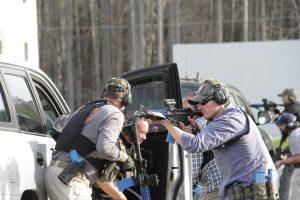
Following a domestic field office assignment—but prior to their first assignment to an embassy or consulate abroad—DSS special agents must complete the Advanced Tactics, Leadership, and Skills course (ATLaS), which prepares them to operate in high-threat locations. DSS thoroughly revised and updated ATLaS after the attack on the U.S. facility in Benghazi, Libya, in 2012. The course involves practical training in operational planning and leadership, small unit tactics, advanced employment of DSS-issued weapons, attack recognition and response, tactical medicine, personnel recovery, air-ground operations, tactical communications, static and movement security procedures, and mindset and stress management. The other curriculum DSS special agents must take to serve overseas is the Basic Regional Security Officer course, which refreshes some of the hard skills learned in BSAC, like shooting and tactical driving; however, this course focuses more on the day-to-day management of the physical, technical, and procedural security skills needed to manage security in a foreign country. This includes learning about the creation and maintenance of emergency action plans, and how to manage security assets at U.S. diplomatic posts, such as Marine Security Guards (MSG), local guards, and technical security countermeasures.
Just as selection to become a DSS special agent is important, selection for individual tours of duty is also carefully considered. Senior DSS leaders and other State Department officials carefully select potential regional security officers (RSOs) at U.S. embassies and consulates. In addition to the RSO, most U.S. diplomatic posts abroad have a handful of other well-trained DSS specials agents, known as assistant RSOs, who help to carry out the DSS mission. Depending on the size of the office, there may also be a deputy RSO who helps manage day-to-day security operations. Other personnel in the RSO office includes technical security experts, local national investigators, locally hired security guards, a cadre of locally hired bodyguards to protect the ambassador, and a detachment of Marine Security Guards (MSGs).
In a crisis, this DSS footprint may be supplemented by two specialized teams: a small detachment of U.S. Marines from the Marine Security Augmentation Unit (MSAU) in Quantico, Virginia, and a team of DSS special agents from the Office of Mobile Security Deployments (MSD). Special agents assigned to MSD are members of a crisis response unit and can deploy anywhere in the world within hours of a threat. They go through an intensive training regimen to prepare them for the most dangerous missions under the most austere conditions. Through a longstanding agreement between the Department of State and the U.S. Marine Corps, the RSO serves as the operational commander of the MSGs and MSAU Marines when they are deployed overseas in support embassy security operations.
During the January 2022 Kazakhstan incident, MSD deployed within days as initially peaceful protests transitioned into violent riots. MSD helped secure consulate facilities and support evacuation efforts of diplomatic personnel and hundreds of U.S. citizens in danger from the wide-spread looting and fighting between various groups vying for power and territory. This included helping U.S. consulate personnel prepare for evacuation and locating secures route to the airport and over land to neighboring countries. This situation was further complicated as the Kazakhstani government facilitated the deployment of several thousand mostly Russian and Belarussian military troops under the auspices of the Collective Security Treaty Organization into Kazakhstan to help them secure the country. The DSS special agents from the RSO office and MSD units had to carefully negotiate checkpoints and roadblocks set up by the combination of protestors and security forces from three nations; all of whom had competing priorities and differing procedures without a unified command and control structure to engage with.
Of course, like any agency, DSS does not operate alone when responding to critical incidents. At a U.S. embassy, the senior DSS special agent—the RSO—is part of a larger group of stakeholders referred to as the “country team,” overseen by the chief of mission, who is often an ambassador. The team includes the senior representatives from all the U.S. agencies and U.S. Department of State sections operating in country. For emergency preparedness and response, there is an emergency action committee (EAC). The deputy chief of mission chairs the EAC, but as the senior law enforcement and security advisor to the chief of mission and deputy chief of mission, the RSO is involved heavily in the decision-making. The emergency action plan, developed by the RSO and other EAC stakeholders, includes development of “decision points” to help the EAC understand the normal operating context and key risk indicators that may be changing. This helps all the stakeholders locally and senior decision makers in Washington, DC, stay focused and prepared to take necessary actions.
DSS special agents serving at U.S. embassies in consulates in the Caribbean prepare for hurricane season every year. Among other tasks, this includes ensuring emergency handheld radio and satellite phone systems are operating and embassy personnel know how to use them, facilitating evacuation or shelter-in-place operations depending on the risk indicators of the size and nature of the individual storms, conducting damage assessments after the storms pass, and providing emergency response to personnel in need. In the case of major storms each year, DSS special agents also coordinate with Disaster Assistance Response Teams from the U.S. Agency for International Development to facilitate their operations.
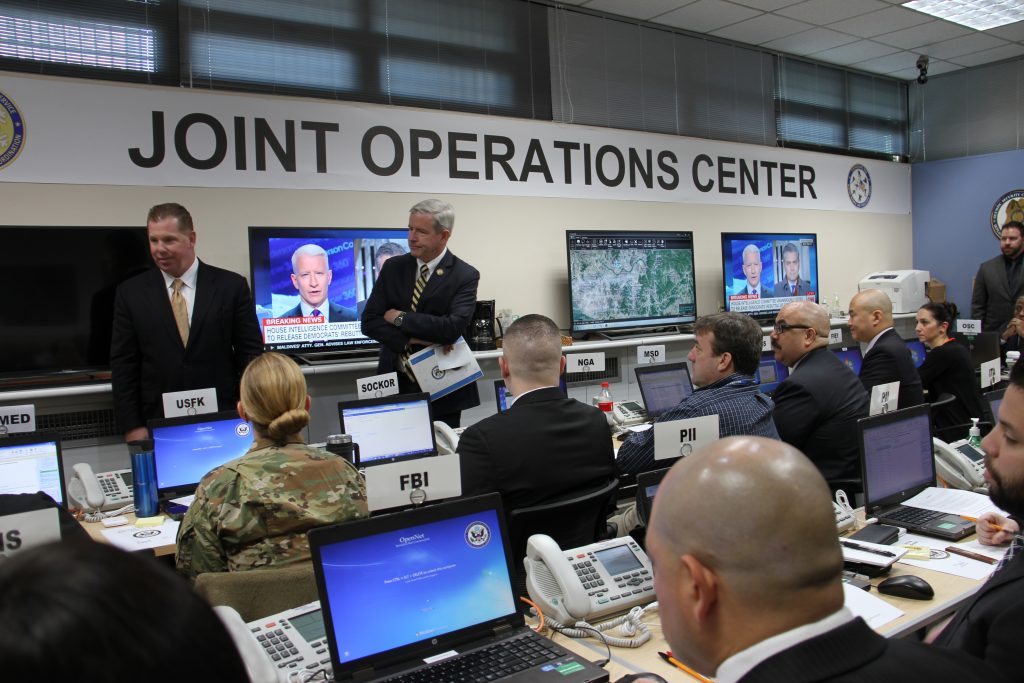
The U.S. Department of State’s Foreign Service Institute’s Crisis Management Training Division (CMT) works with our embassies and consulates to design and run enhanced table-top exercises for the EACs at a minimum of every two years and every year for our high-threat posts. They also assist with similar exercises to prepare for high-profile international events such as the Olympics and the World Cup. These exercises are designed to examine scenarios that the U.S. embassy or consulate may face to ensure the team on the ground has thought through the potential event and has made the appropriate plans and preparations to respond should the hazard or threat manifest. They allow for certain key injects and depending on the scenario, members of the EAC are required to take the actions necessary to ensure equipment and procedures work. This may include testing satellite communications equipment, snap inventories of medical or shelter-in-place supplies, moving to the alternate command center to ensure its operability, or practicing other perishable skills.
In addition to these exercises, RSOs routinely plan and execute mission-wide drills, such as bomb threats and “duck and cover,” to ensure all employees are ready to take immediate life-safety actions. The drills are supplemented by table-top and functional exercises by designated response teams that support the regional security office, such as the medical response team, facilities team, and security team. Finally, RSOs design full-scale exercises, which are implemented by the EAC, to ensure embassy personnel are prepared for the most likely emergencies they may face. Most embassies include host government response agencies in their functional and full-scale exercises, which helps the RSO and embassy senior leadership test interoperability among the entities that may assist during a crisis.
Working with the host country security services is a key facet of crisis management for DSS. Each country has its own unique structure of local, state, and national law enforcement agencies, including military or quasi-military organizations in some countries. Navigating the relationships to determine who is responsible for embassy security or assistance in a larger crisis is a key job of the RSO staff.
For example, in Nuevo Laredo, Mexico, when a drug cartel attacked the U.S. consulate in response to the arrest of their leader in March 2022, DSS special agents on the ground quickly coordinated with a combination of Mexican federal authorities, including the army, to provide enhanced security to the U.S. consulate and its personnel. MSD deployed to further reinforce security at the diplomatic post and escorted movements of at-risk embassy family members and non-emergency staff across the border to Texas. As the situation stabilized, the senior RSO for the U.S. embassy in Mexico City partnered with the RSO at the U.S. consulate in Nuevo Laredo to secure increased support for the consulate from the Mexican government.
In March 2022, the RSO at the U.S. Embassy in Bamako, Mali, conducted a full-scale exercise for a scenario involving an attack on the embassy by an active shooter positioned atop a nearby apartment building. The exercise included participation by RSO staff, the MSGs, the embassy’s health unit and volunteer casualty response team, and host nation security personnel. Coordinating this exercise required RSO engagement with senior leadership of the government of Mali, including the national guard chief of staff, to ensure that security forces from surrounding government offices understood it was an exercise. While the role players and local security services were pre-briefed about the exercise, the response teams themselves were not, allowing for more realistic exercise to best stress-test the emergency plans.
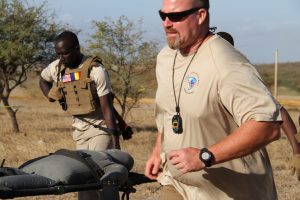
In some countries, DSS offers training through the department’s Antiterrorism Assistance (ATA) program to help the host country develop necessary skills and provide needed equipment. In more than a dozen high-risk countries, DSS also formally partners with a host country law enforcement unit through a program called Special Program for Embassy Augmentation and Response (SPEAR). The presence of SPEAR teams ensures there is a specially trained and equipped unit designated as a crisis response team for the U.S. embassy. As with several other DSS programs, the organization developed SPEAR in response to the 2012 attacks in Libya. SPEAR team members typically are among the most professional, most highly respected security officers in their countries. To bolster this ethos, ATA has launched a comprehensive program to provide tailored human rights training for members of SPEAR teams and other tactical response units. Many attendees comment they have never before participated in discussions of this depth on human rights and the related stresses of maintaining the highest professional conduct, standards, and ethics while serving in a tactical unit.
In addition to the ATA programs, many foreign partners also participate in a network of Department of State-operated International Law Enforcement Academies, which promote international interoperability through training. All these efforts help build the relationships needed to manage crises as they arise.
The March 2022 exercise in Mali is a great example of how the SPEAR teams can be used. As host-nation security forces, the SPEAR team has the authority—to include arrest authority—to engage threats emanating outside of the embassy. While the RSO team and other responders took care of securing, accounting for, and providing medical assistance inside the walls of the embassy, the SPEAR team responded directly to neutralize the “threat.” Direct communication between the RSO, serving as the incident commander; the MSGs; and the SPEAR team allowed for quick pivots as the responders determined the threat was outside the walls.
In preparation for managing larger-scale crises, DSS special agents routinely participate in exercises with various U.S. military units such as U.S. Marine expeditionary units, fleet anti-terrorism security teams (FAST) Marines, and other military units. DSS has incorporated many of these entities into its ATLaS capstone exercises to, again, test the collaboration between DSS and the U.S. military during emergency situations. DSS also has senior-level agents assigned as liaison officers to several U.S. military combatant commands. These DSS special agents provide a direct link to military units responsible for developing plans to respond to global crises, resulting in enhanced communication, planning, and response efforts between the U.S. Departments of State and Defense.
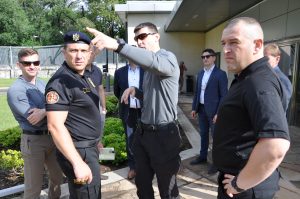 |
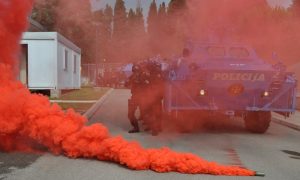 |
DSS also leads the Foreign Emergency Support Team (FEST), which consists of Department of State, U.S. military, and other federal government personnel who can deploy on short notice to anywhere in the world to provide subject-matter expertise and support to the embassy where a crisis is unfolding.
FEST deployed to Beirut, Lebanon, on August 8, 2020, in response to a request for assistance from the Lebanese government following the explosion at the Port of Beirut on August 4. This DSS-led interagency team included specialists from the Department of State in operational medicine, public affairs crisis communications, and weapons of mass destruction, along with representatives from the U.S. Coast Guard, the U.S. Department of Health and Human Services, the Federal Bureau of Investigation, and USAID’s Disaster Assistance Response Team. On the ground, the FEST aided the U.S. embassy and the government of Lebanon in determining the actual needs for medical facilities, critical infrastructure, operational capacity, and supplies to aid the tens of thousands of people affected by the blast.
A key partner to DSS’s responses to critical incidents overseas is the Department of State’s Bureau of Consular Affairs, which is the link between the U.S. government and private U.S. citizens traveling abroad. Mostly known for their work issuing passports to U.S. citizens and visas for international visitors to the United States, Consular Affairs manages a travel advisory system from Level 1 (Exercise Normal Travel Precautions) to Level 4 (Do Not Travel), the latter of which recommends that U.S. citizens defer travel to a particular country or leave the country if they are already there. DSS works closely with Consular Affairs to update these travel warnings, which are often based on unfolding security events. Consular Affairs works to keep U.S. citizens aware of changing conditions and in the event of a major incident may even set up its own separate task force to help account for and evacuate private U.S. citizens who have been affected by the incident. DSS and Consular Affairs work hand-in-hand to facilitate these evacuations.
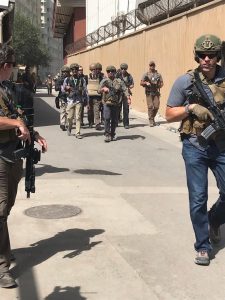
Closing a U.S. embassy or consulate, even temporarily, is a significant event; suspending all operations and abandoning an embassy or consulate is a massive undertaking. When this is called for, the regional security office reviews options with the EAC and the pace of communication with Washington, DC, increases. Typically, the U.S. Departments of State and Defense both stand up round-the-clock task forces in emergency operations centers to coordinate efforts between stakeholders across the federal government to safely facilitate the evacuation of personnel, ensure consolidated messaging, and deconflict cross-department activities. Examples of events over the last several years that required the suspension of operations and complete evacuation of a U.S. mission include the civil wars in Libya, Yemen, and Syria and upheavals in Venezuela and Afghanistan, as the situation in each case simply became too dangerous for embassy personnel to remain.
Another group of DSS personnel who are key to managing the crisis are the diplomatic couriers. While they are not law enforcement officers, diplomatic couriers ensure the secure shipment of diplomatic pouches, some the size of 40-foot cargo containers, around the globe. Whether equipment needs to be moved into a crisis location to facilitate response, or out as part of an evacuation, the diplomatic couriers are highly trained to ensure it can be moved without being tampered with or compromised. Like others in DSS, these professionals have worked through military coups, political upheavals, global pandemics, and natural disasters. In fact, they were instrumental in delivering personal protective and medical equipment during COVID-19, and safely transported sensitive materials as U.S. embassies closed in Kabul, Afghanistan, and Caracas, Venezuela.
The range of events DSS is required to respond to shows the importance of selection, training, planning, and preparedness before a critical incident kicks off as well as the need for plentiful coordination and communication throughout its management. These types of incidents are where DSS excels, and for which our DSS special agents, technical experts, and support personnel spend years training and preparing. 🛡
Please cite as
Christopher Stitt, “Worldwide Crisis Response: The Diplomatic Security Service’s Critical Incident Management Expertise Spans the Globe,” Police Chief Online, November 30, 2022.


